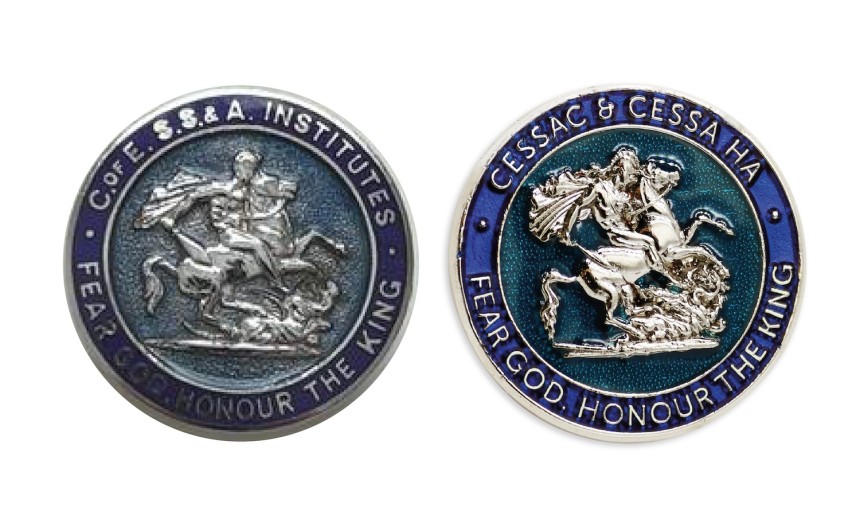
How We Recreated a 133-Year-Old Pin Badge
We don't shy away from a challenge at Made by Cooper, and we're always looking for opportunities to showcase our skills.
So when Lt Col Joe Petty (Retd) from the CESSAC Institute asked if it would be possible to recreate a 133-year-old enamel pin badge worn by the original members of the CESSA organisation, we jumped at the chance to show just how far our expertise can go.
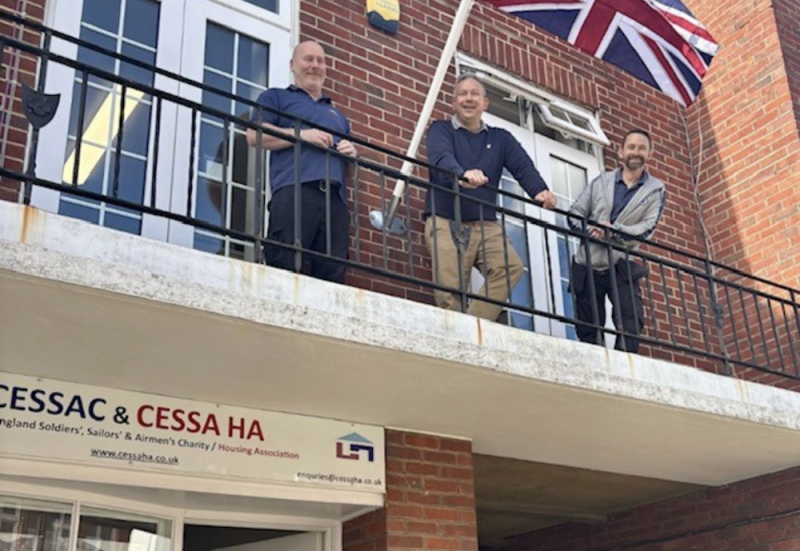
What Is The CESSA HA & CESSAC Organisation?
The story began with two sister organisations that continue to support the Armed Forces community to this day.
The first is the Church of England Soldiers’, Sailors’ & Airmen’s Housing Association (CESSA HA), which provides sheltered homes for veterans of the Army, Royal Navy and Royal Air Force, along with their families, as long as they’re aged sixty or over. These housing schemes are scattered along the south coast and provide older veterans with a safe and supportive place to live in their later years.
Running alongside CESSA is the Church of England Soldiers’, Sailors’ & Airmen’s Clubs (CESSAC), which is the charitable arm of the organisation, responsible for creating welfare and social spaces for serving military personnel both in the UK and overseas. CESSAC also manages additional housing schemes for Royal Navy veterans and their families on behalf of Greenwich Hospital, ensuring support stretches even further.
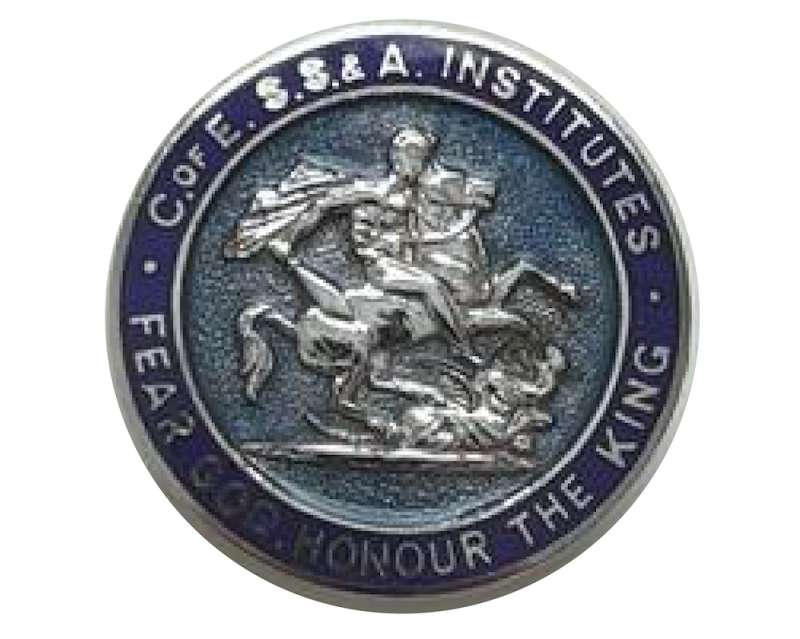
The Original CESSA Pin Badge
In the late 1800s, the fine people at CESSA wore these original pin badges, which were manufactured in much the same way, except for the type of enamel used.
Before World War II, almost all enamel pin badges used cloisonné enamel (a type of powdered glass that fuses to metal at high temperatures) as opposed to the epoxy-based enamels we use today.
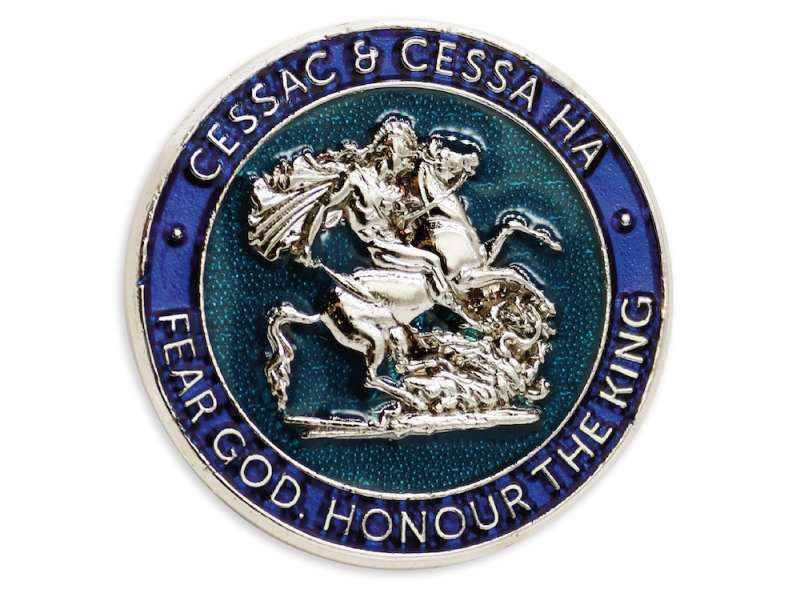
The Reimagined CESSAC Pin Badge
Lt. Col. Petty wanted us to make the new badges as close to the original pins as possible, while only changing the name of the group from "C. of E. S. S. & A. Institutes" to "CESSAC & CESSA HA".
Instead of using the (likely) base materials of copper and brass for the pin base as they would in the 1890s, we used an iron base and nickel plating. We combined die-cast 3D techniques with soft enamel to create the raised area, which gives the pin an authentic antique pin badge aesthetic.
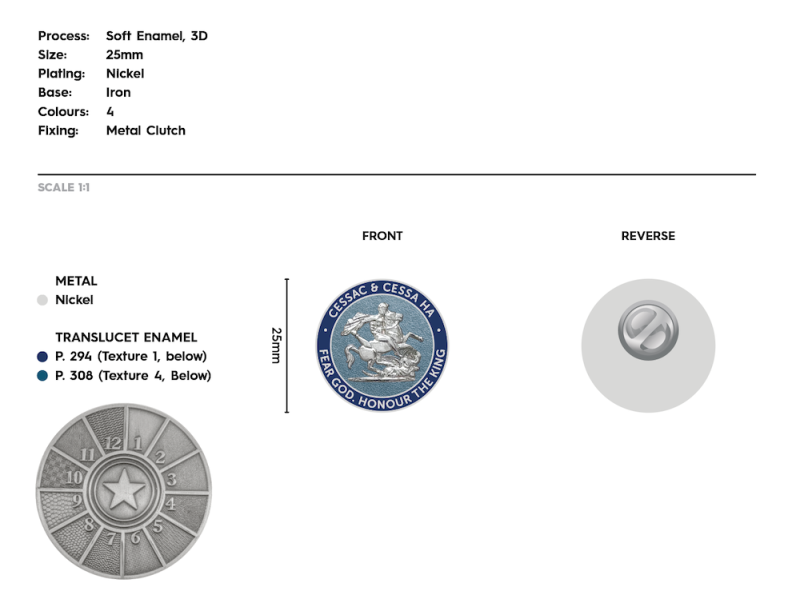
We also swapped out the traditional brooch/safety pin style of fixing for the more popular pin badge post, which has been the preferred method of attachment since its introduction in the 1950s.
We were delighted with the job we did recreating this classic pin, but it's not our opinion that matters. So what did our client think?
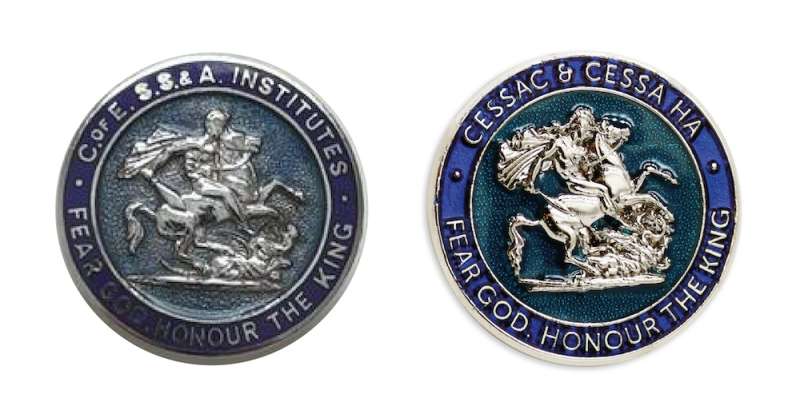
The Finished Product
We were pleased to hear that Lt. Col. Petty was as happy as we were after seeing the pins for the first time. He said;
"I was interested in re-introducing a small button badge that staff & volunteers of our military charity used to wear (up until around 1891). We had one small original that was framed in our Head Office, so we didn't have much to work from."
"However, working closely with the design team at Made by Cooper, we were able to bring together a fantastic revision of the original design. The quality of the materials used and the exceptional customer service brought this small project together perfectly. I cannot recommend them highly enough. A special thanks to Corey, who guided me through the design process and met every challenge presented."
How Made by Cooper Can Help You Too
If you're looking to recreate authentic-looking pin badges from over 100 years ago, want to rebrand your organisation, or have never-before-seen ideas that you want to bring to life, our expert team can help you realise your vision.
Our expert, yet friendly, design team are waiting for your emails or calls so we can get the ball rolling.